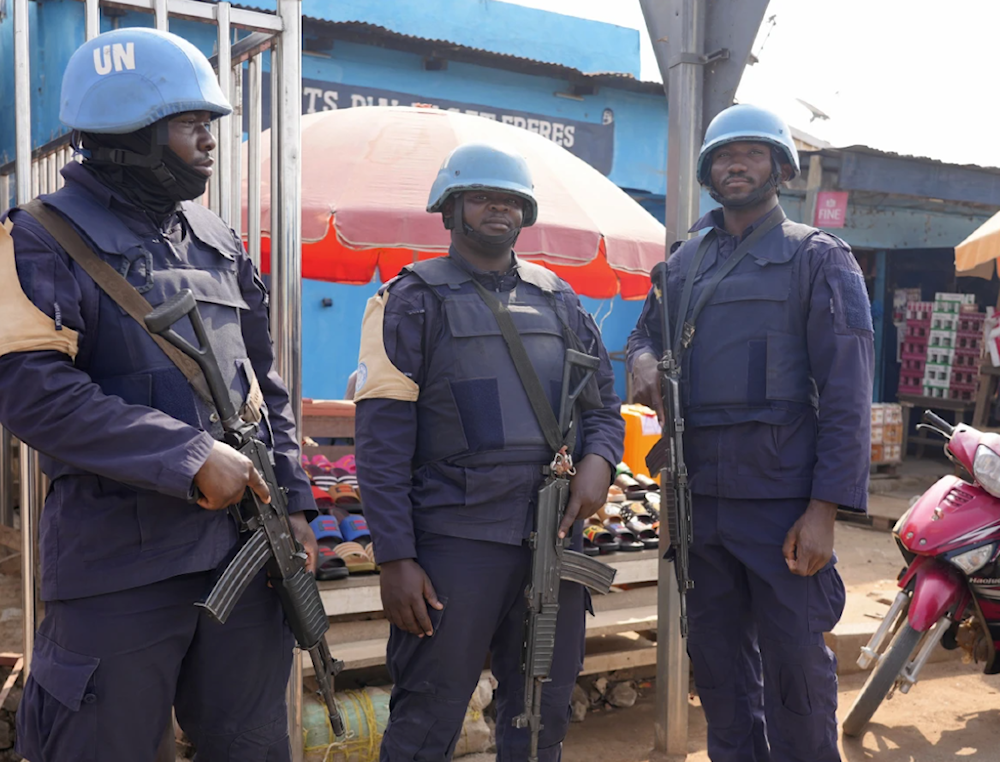UN lifts territorial arms embargo on Central Africa
CAR Foreign Minister Sylvie Baipo-Temon calls the decision a "diplomatic victory" that restores dignity to the country and its people.
-

United Nations peacekeepers stand in the market in Bouar, Central African Republic, on March 8, 2024. (AP)
The UN Security Council lifted a territorial arms embargo on the Central African Republic (CAR) on Tuesday, which was imposed when civil violence broke out in 2013.
The unanimously voted resolution repealed restrictions that were already weakened last year when Security Council members decided to exclude government troops from the embargo.
Despite eliminating the territorial embargo, Tuesday's action included a secondary prohibition on sales to "armed groups" operating in the nation until the end of July 2025, which was already in effect.
Sylvie Baipo-Temon, the foreign minister of CAR, called the decision a "diplomatic victory", adding that it restores dignity to the CAR and its people making it a "model of perseverance and determination in the quest for a fairer world."
"It will have taken months, years, to put an end to a sanction which, as I have always said here, in 2013 may have seemed just but today has become unjust," stated Baipo-Temon.
Since former President Francois Bozize was deposed in 2013 by a military alliance known as the Seleka, the former French colony has been torn apart by civil conflict.
French involvement and the deployment of UN forces prepared the door for the 2016 elections, which President Faustin-Archange Touadera won. Two years later, he requested that fighters from Russia's Wagner group train his forces.
The war has decreased in severity since 2018, although the nation continues to see outbreaks of violence.
Following the Security Council vote, Russian UN Ambassador Vassily Nebenzia stated that "it would be appropriate perhaps to raise the question of abolishing the arms embargo on illegal armed groups operating in the Central African Republic."
Nebenzia added that "the problem of illegal armed groups can be solved only through sovereign efforts to stabilize and ensure the security within national borders with the cooperation of neighboring countries."

 2 Min Read
2 Min Read








